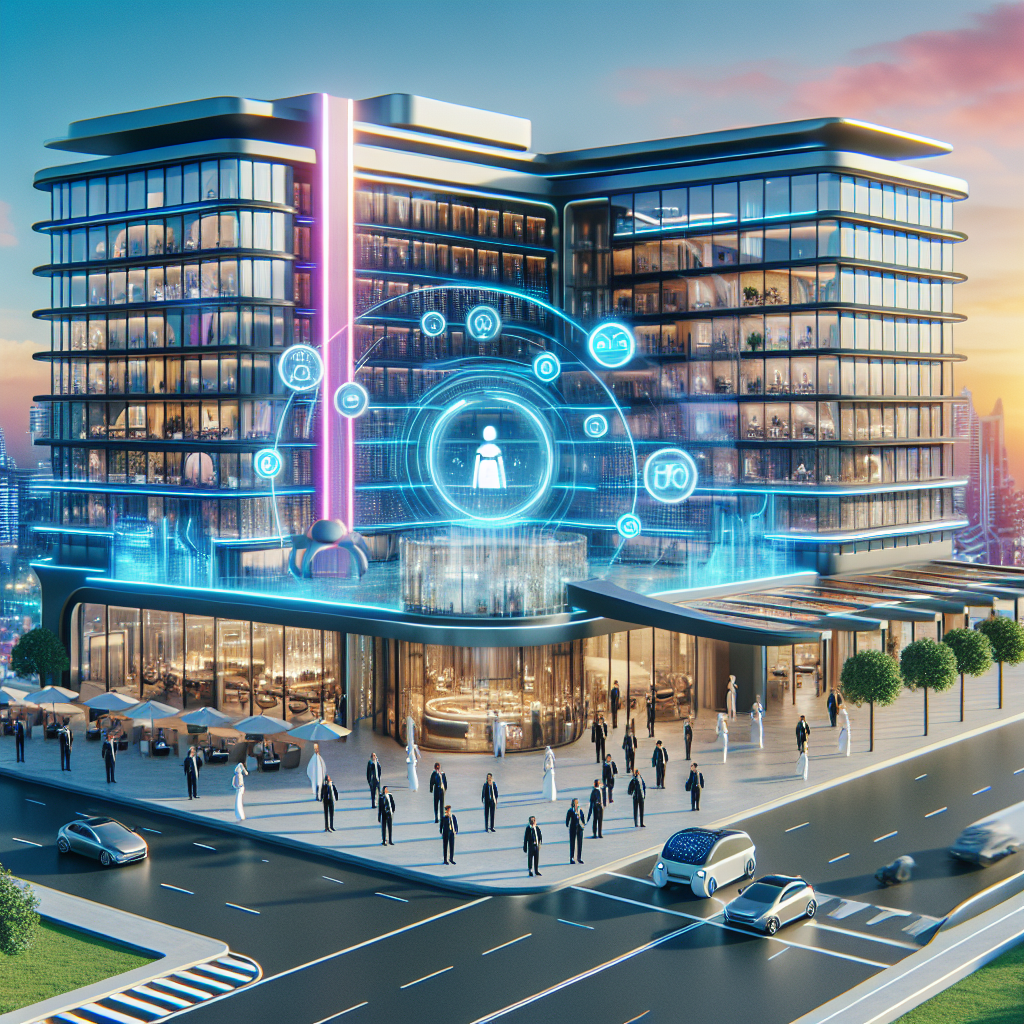Artificial Intelligence (AI) is revolutionizing industries across the board, and the hotel industry is no exception. From personalized customer experiences to operational efficiency, AI is reshaping the way hotels operate and interact with guests. In this article, we will explore the key AI trends shaping the future of the hotel industry and how they are transforming the guest experience.
Personalized Guest Experiences
One of the most significant ways AI is impacting the hotel industry is through personalized guest experiences. By leveraging AI algorithms and machine learning, hotels can analyze guest preferences and behavior to create tailored experiences. This can range from personalized room recommendations based on past stays to customized amenities and services.
For example, hotels can use AI-powered chatbots to interact with guests and provide personalized recommendations for dining, entertainment, and activities in the area. These chatbots can also handle guest inquiries and requests, providing a seamless and efficient customer service experience.
AI can also be used to enhance in-room experiences. For instance, hotels can use voice-controlled assistants like Amazon Alexa or Google Home to allow guests to control room amenities such as lighting, temperature, and entertainment systems. These assistants can also provide concierge services, recommendations for local attractions, and even make reservations for guests.
Operational Efficiency
AI is also transforming the way hotels operate by improving efficiency and streamlining processes. From revenue management to housekeeping, AI can optimize operations and reduce costs.
One key area where AI is making a significant impact is revenue management. Hotels can use AI algorithms to analyze market trends, competitor pricing, and demand forecasts to optimize room rates in real-time. This allows hotels to maximize revenue by adjusting prices based on demand and booking trends.
AI can also be used to automate repetitive tasks in housekeeping and maintenance. For example, hotels can use AI-powered robots to clean rooms, deliver amenities, and even perform maintenance checks. This not only improves efficiency but also reduces labor costs and ensures a consistent level of service.
Enhanced Security
Security is a top priority for hotels, and AI is playing an increasingly important role in enhancing security measures. From monitoring guest activity to detecting potential threats, AI-powered security systems are helping hotels keep guests and staff safe.
AI can be used to analyze surveillance footage in real-time to detect suspicious behavior and alert security personnel. Hotels can also use facial recognition technology to enhance security by identifying guests and employees and restricting access to certain areas.
AI-powered systems can also be used to monitor guest activity and detect anomalies that may indicate potential security threats. For example, AI algorithms can analyze guest behavior patterns to identify unusual activity, such as multiple failed attempts to access a room or unauthorized access to restricted areas.
Improved Guest Satisfaction
Ultimately, the goal of AI in the hotel industry is to improve guest satisfaction and loyalty. By providing personalized experiences, streamlining operations, and enhancing security measures, hotels can create a more enjoyable and memorable stay for guests.
AI can help hotels anticipate guest needs and preferences, leading to a more personalized and tailored experience. For example, hotels can use AI algorithms to analyze guest feedback and reviews to identify areas for improvement and address guest concerns proactively.
AI can also be used to improve the check-in and check-out process, making it faster and more convenient for guests. Hotels can use AI-powered kiosks or mobile apps to allow guests to check-in online, select room preferences, and even access their room using a digital key on their smartphone.
FAQs
Q: How is AI being used in the hotel industry?
A: AI is being used in the hotel industry in a variety of ways, including personalized guest experiences, operational efficiency, enhanced security, and improved guest satisfaction.
Q: What are some examples of AI in the hotel industry?
A: Some examples of AI in the hotel industry include AI-powered chatbots for customer service, voice-controlled assistants for in-room amenities, AI algorithms for revenue management, and AI-powered robots for housekeeping.
Q: How does AI improve guest experiences in hotels?
A: AI improves guest experiences in hotels by providing personalized recommendations, streamlining operations, enhancing security measures, and anticipating guest needs and preferences.
Q: What are the benefits of AI in the hotel industry?
A: The benefits of AI in the hotel industry include increased efficiency, cost savings, improved security, and enhanced guest satisfaction and loyalty.
In conclusion, AI is transforming the hotel industry by providing personalized guest experiences, improving operational efficiency, enhancing security measures, and increasing guest satisfaction. As AI technology continues to evolve, hotels will need to adapt and embrace these trends to stay competitive in the ever-changing hospitality landscape.

